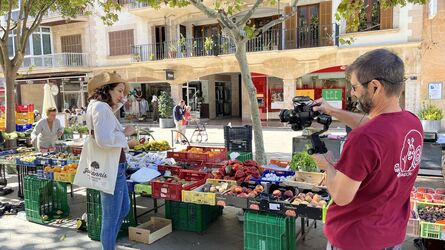With a series of video portraits, TV journalist Sibylle Tiessen takes us on a captivating journey into a world full of exciting projects, cultural diversity and authentic stories on Mallorca. Supported by TUI, the TUI Care Foundation and Majorca Daily Bulletin, viewers learn more about the island from a whole new perspective, from inspiring stories of locals to social, artistic, ecological, scientific and political aspects.
Episode 2: Mallorca's Guardian of the Neptune Grass
Neptune grass produces oxygen and is considered the “lungs of the Mediterranean”. It is because of it that the Balearic waters are so crystal clear. It is a typical endemic plant of the Mediterranean. The seagrass meadows it forms is the basis of important marine ecosystems.
Marcial Bardolet Richter has been committed to protecting the aquatic plant for many years. Since 2017, he has headed the department for monitoring seagrass meadows at the Balearic Ministry of the Environment.
Up to October, Bardolet’s team sails out into the Mediterranean every day with reconnaissance boats to check whether yachts and pleasure boats are anchoring wrongly. A total of 19 boats are deployed on the Balearic coast with the task of protecting the neptune grass. Water pollution, shipping and climate change are the main reasons why the seagrass meadows are suffering. In 2018, the Balearic Islands passed a decree that strictly prohibits anchoring on neptune grass. In the meantime, there are several apps that indicate the exact location of seagrass beds with geodata so that anchoring is not allowed there.
“Clear water, good air, a healthy environment, satisfied holidaymakers and locals are what everyone strives for. And that is only possible with an intact underwater jungle of neptune grass.”, emphasises Bardolet.
Find out more in our video:




 Austria
Austria



